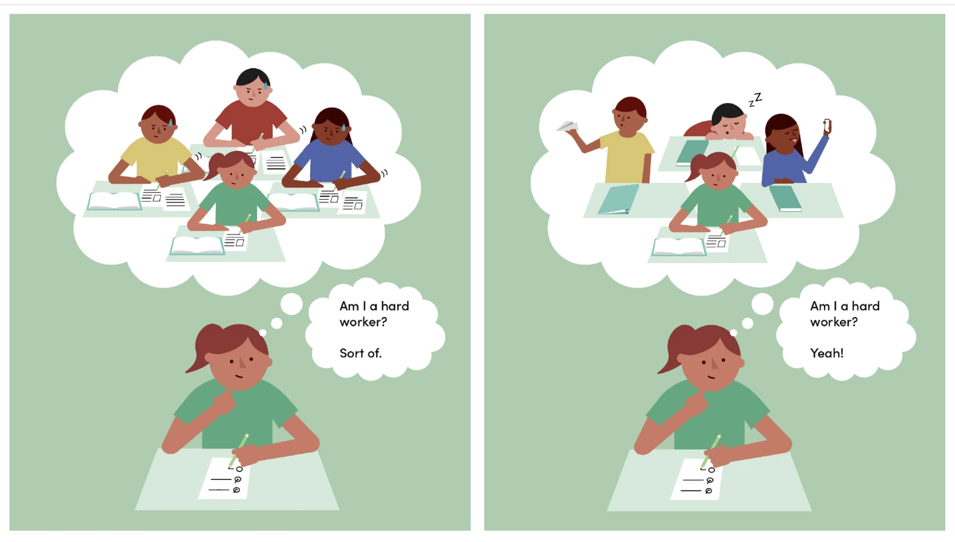Reference bias and self-regulation
What self-regulation is and how it develops
Both in the research literature and in educational practice, there is now more attention for self-regulation. Self-regulation refers to a set of personal qualities, separate from cognitive abilities, that enable people to set and pursue goals. Research suggests that self-regulation develops optimally in a caring environment that encourages:
- adaptive goal-directed knowledge (e.g. strategies to control attention)
- beliefs (e.g. that emotions and motivation can be regulated)
- values (e.g. that self-regulation is important)
Paradoxical findings on self-regulation
Self-regulation research has yielded some paradoxical findings. One paradoxical finding is that certain schools that invest in the development of self-regulation showed all kinds of positive effects such as higher grades, less absenteeism, more transfer to secondary education, etc., but not higher self-assessments of self-regulation by the students (see for example here).
Another paradoxical effect is that cross-cultural research has shown that students in Asian countries rated themselves lower on conscientiousness (an aspect of self-regulation) than students in other countries who are thought to be less conscientious.
Reference bias
Lira et al. (2022) explain these remarkable findings with the reference bias. This is the systematic error that occurs when respondents refer to different implicit norms when answering the same questions. The reference bias threatens comparisons between schools and may help explain the conflicting evidence of school effects on self-regulation.
The researchers conducted three studies in which adolescents rated themselves on self-regulation (N = 229,685). They showed the reference bias. When peers perform better academically, students have higher standards of self-regulation and lower self-evaluation.
Implications
The reference bias is important for scientific research and field research. The reference bias could suppress or even reverse measured effects of interventions if the measures by which people rate their own behavior on pre- and post-questionnaires shift as a function of the intervention. It is therefore advisable to exercise caution when interpreting studies that rely heavily on self-reports.

Comments